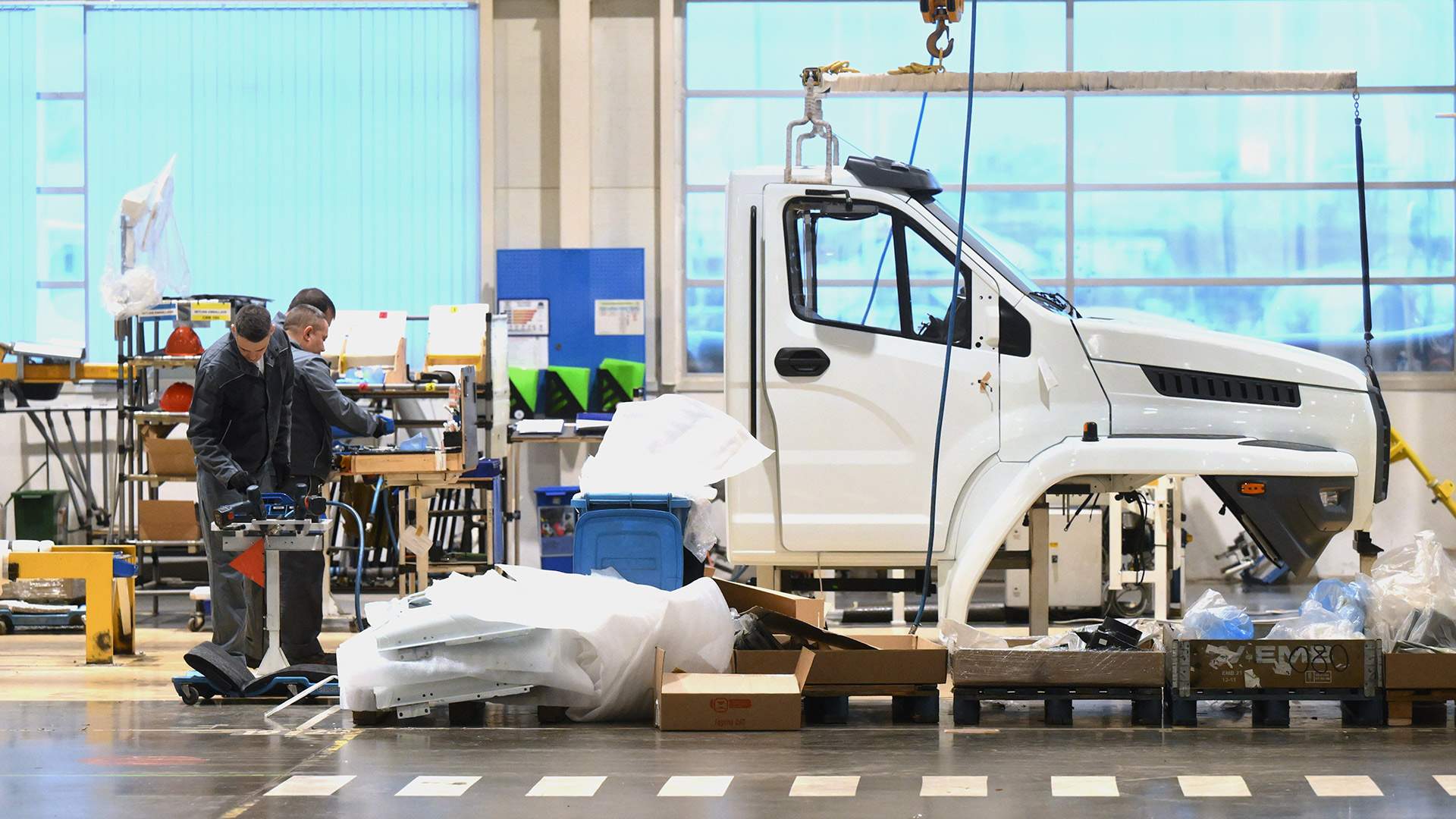From afar long: what the Russian auto industry has not done in 2024

Last year was marked by a significant increase in production and sales of new cars. The number of brands and models present on the Russian market also grew. But not everything that manufacturers promised was fulfilled. About what they decided to leave for 2025 - in the material of "Izvestia".
Not restarted
In late November, it became known that the restart of the former Toyota plant in St. Petersburg will not take place in 2024, as previously announced. Information about the postponement was confirmed by Alexei Yakovlev, deputy head of the St. Petersburg Committee for Industrial Policy, Innovation and Trade.
"There is a month left until the new year. In all probability, the plant will not be launched this year," Yakovlev said at the Russian Industrialist forum, TASS reports.
Earlier it was reported that the plant is to launch production of Aurus premium cars together with a foreign partner by the end of the year.
JSC PLA from Nizhny Novgorod, which revives the famous Russian passenger car brand and showed prototypes of cars in 2024, does not want to attract unnecessary attention to this project, although work on it is ongoing. It is not hard to guess that the name of this brand is consonant with the name of the river flowing into the Caspian Sea.
- Neither the work has been stopped, so we will see these cars in one way or another," said Maxim Kadakov, editor-in-chief of Za Rulem.
Revised plans
Other automakers have revised the release dates of new models. Moskvich automobile plant has postponed the start of sales of a new seven-seat crossover with the index 8, now the model is scheduled to enter the market in February 2025. Previously, "Moskvich" planned to launch production and sales of the new model by the end of 2024. With what is connected with the adjustment of plans, it is not specified. UAZ and Italian-Chinese SWM have postponed their new products to the new year.
Electric car brand Evolute has put its first hybrid into production, but the status of the long-promised electric minivan i-Van is still "on sale soon".
Kaliningrad-based Avtotor was forced to revise its production plans during the year. Initially, the company intended to produce 100-130 thousand cars in 2024. In April, Valery Gorbunov, Chairman of the Board of Directors of Avtotor Holding LLC, reported that Avtotor plans to produce about 80-100 thousand cars by the end of 2024. Later, Russian Minister of Industry and Trade Anton Alikhanov named a more modest figure.
"The plan for this year is about 70 thousand cars. But a lot depends on how they establish work with their Chinese partners," Alikhanov said.
Kept promises
But AvtoVAZ has fulfilled almost all the promises made at the beginning of the year: it showed the new Iskra model, relaunched Largus in Izhevsk, retrofitted Vesta with ESP and new options, launched production of Lada Aura and started production of Niva Sport at the end of the year. However, "Granta" is still without ESP promised in the older sets. The classic Niva Legend has not received airbags, only Niva Travel has been equipped with them yet.
They refused from internal combustion engine early
Despite forecasts, electric cars have not become a dominating force in the world automobile industry. The growth rate of their sales in the world is slowing down, moreover, the popularity of pure electric cars is decreasing, while the popularity of hybrids, which were clearly underestimated, is growing. It is growing in Russia as well. According to Avtostat, if last year more electric cars were sold in our country than hybrids, then in 2024 hybrids have doubled. Next year, analysts predict a difference of 4-5 times in favor of cars with a gasoline "add-on"
- I expected that there would be a wider "electrification", but by the end of the year it became clear that both in Europe, in the world, and in our country, we were running too "fast", faster than a locomotive. The pace of electric car sales began to fall all over the world and somehow everyone began to say that the internal combustion engine still has a chance, there were forecasts that by 2025 half of the companies will stop producing internal combustion engines, including Volvo, which changed its mind," recalls Igor Morzharetto, partner of Avtostat.
The modest demand for electric cars, despite government support, has forced Russian manufacturers of such cars to revise production plans. Foreign companies have also revised the terms of launching their electrified novelties on the Russian market. In particular, the Exlantix brand has postponed the launch to 2025 and, in addition to purely electric models, plans to sell hybrids.
Without a motor show
In mid-December, the international automobile show RIAS 2024 was supposed to take place in the capital. It was expected that more than 50 automobile brands from Russia, China, Iran and other countries would take part in it, and about 40-50 thousand people would visit the exhibition during four days. Later, the organizers announced that they were postponing the exhibition until 2025.
Among the reasons for the postponement, they cited the difficult economic and geopolitical situation, "including the consequences of changes in the Central Bank's key rate, an increase in the utilization fee, and increasing sanctions pressure on Chinese automakers."
"Difficulties await the market"
Next year should be more productive for the Russian car industry than 2024, but the market is waiting for difficulties, said the head of the Ministry of Industry and Trade Anton Alikhanov on December 25.
"External sanctions pressure continues to intensify, the industry needs to adjust to the rapidly changing macroeconomic climate. As I have already noted, by the end of this year, we are seeing signs of a gradual slowdown in demand dynamics, the car loan market is shrinking, consumer activity is declining," Alikhanov said in an interview with TASS.
Переведено сервисом «Яндекс Переводчик»







